Making Shrimp Sustainable in Thailand
WWF is working with some of the world’s most innovative farmers to improve shrimp production
Meet the farmers who are putting food on our tables while continually improving their environmental practices and driving their industry forward
Shrimp farming is associated with mangrove destruction, water pollution, and illegal fishing and labor practices, but WWF is working with some of the world’s most innovative and conscientious farmers to demonstrate that shrimp production can be environmentally sustainable, socially responsible, and economically viable. In October 2015, WWF met with some of these farmers in Surat Thani, Thailand’s second largest shrimp-producing region. While the farmers here face different obstacles and opportunities, they are united by a desire to improve their farms’ environmental and social integrity. Swirichai farm, for example, releases no water into the surrounding environment and fertilizes agricultural fields with waste. While on Srisuban farms, they lead community-wide cleanups and mangrove reforestation.
Nongluck Thaisin, Owner, Quality Farm
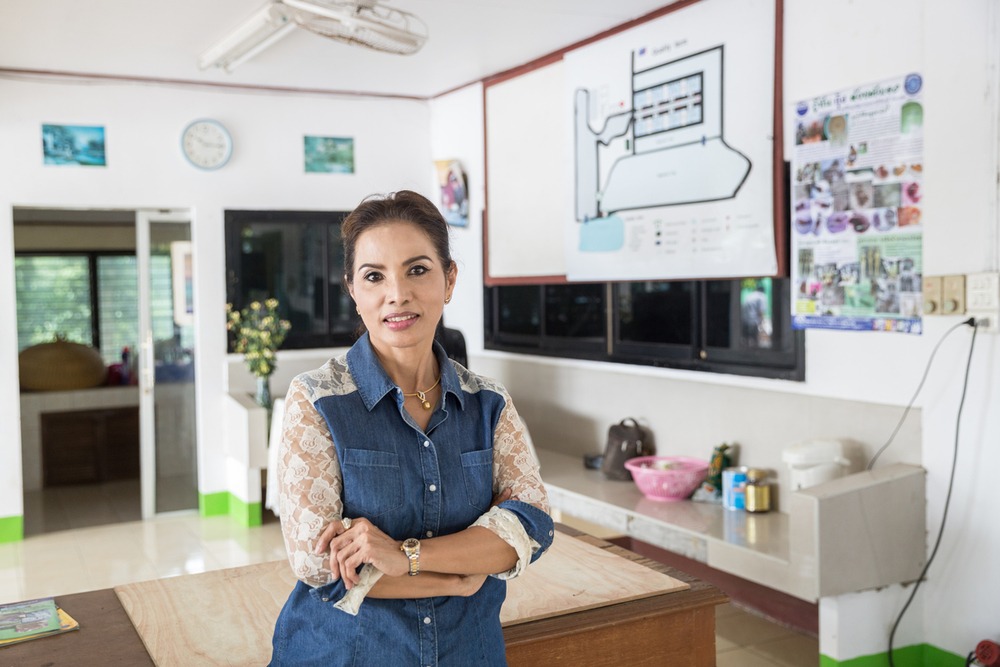
"I am not looking to be environmentally responsible for anyone but myself. I am doing it for myself because it makes me happy." - Nongluck Thaisin, Owner, Quality Farm © Nicolas Axelrod-RUOM / WWF-US
Kaweeyut Petsuk, Manager's Assistant on Shrimp Farm
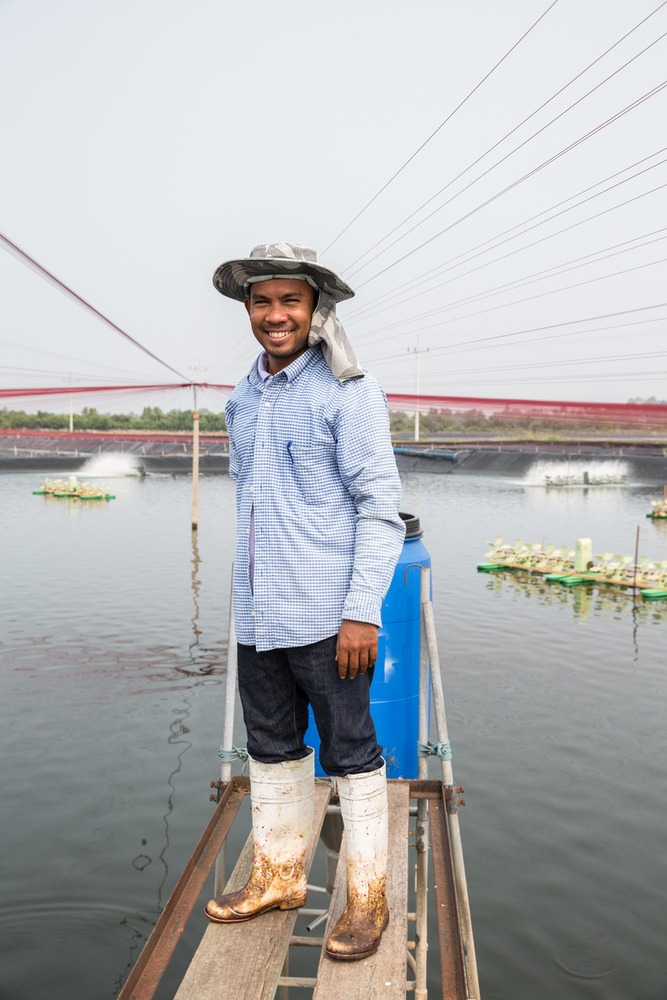
"I've enjoyed fishing since I was young and enjoy living a rural lifestyle. Raising shrimp is a challenge as you have to face new things every day. You always have to plan for tomorrow and always be one step ahead. The job is fun, stressful, but good." - Kaweeyut Petsuk, Manager's Assistant on Shrimp Farm © Nicolas Axelrod-RUOM / WWF-US
Somjit Thrakrudkeaw, Owner of Fish Feed Retailer
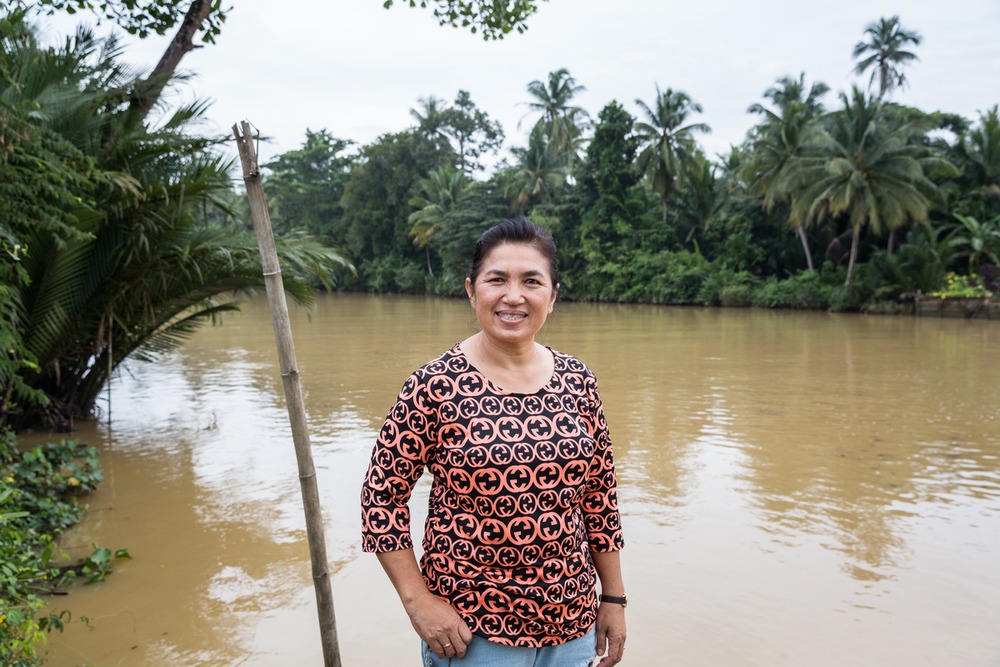
"There is an allure in being able to raise the tiniest of creatures. The job requires a lot of knowledge and experience in order to succeed. If we feed them too much or too little of certain substances, it is visible in their physical appearance." - Somjit Thrakrudkeaw, Owner of Fish Feed Retailer © Nicolas Axelrod-RUOM / WWF-US
Surasak Promkiree, Manager on Shrimp Farm
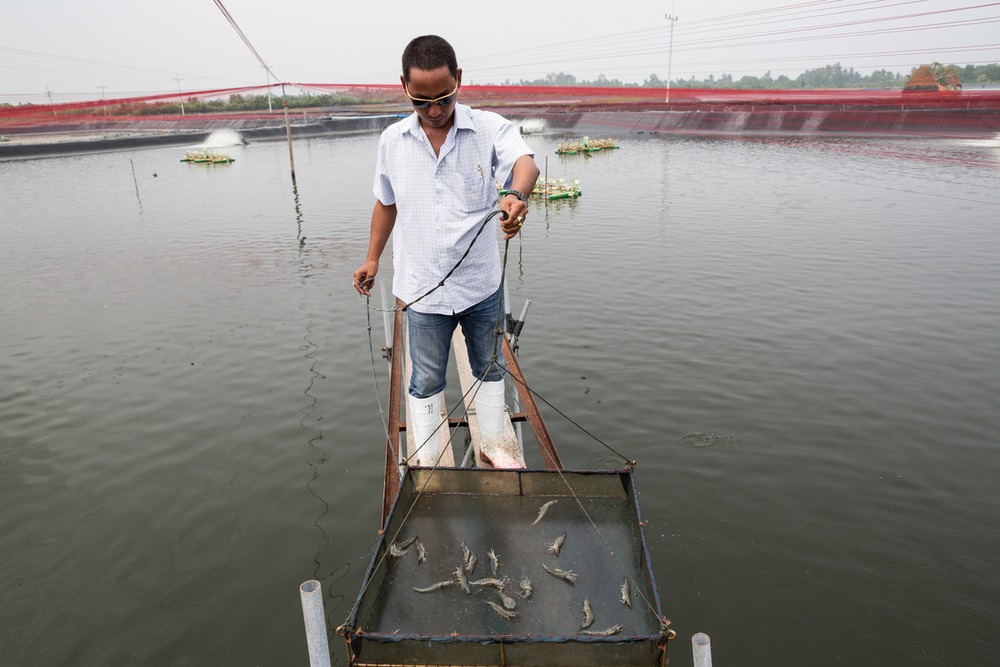
"I've been in shrimp farming for 10 years. I don't like working in an office; I enjoy working in the field and working with animals. Every day is a new challenge for me to solve, which I enjoy. In shrimp farming, we rely so much on the natural environment. You should be as environmentally responsible as possible and not just think about the short-term effects of farming." - Surasak Promkiree, Manager on Shrimp Farm © Nicolas Axelrod-RUOM / WWF-US
Udom Kunkum, Sriwichai Shrimp Farm
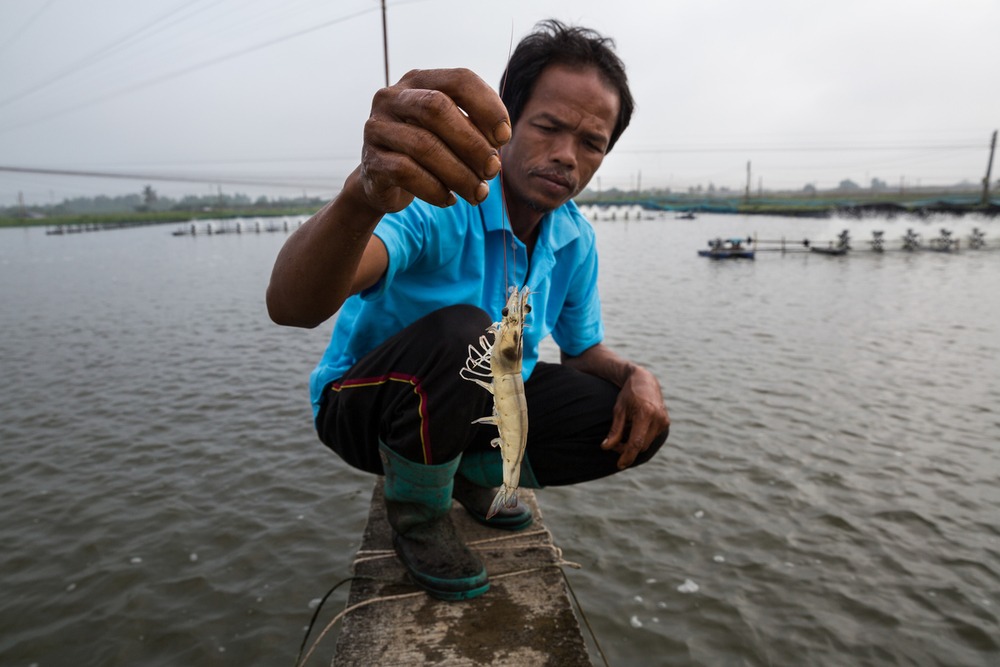
"I am originally from Laos and moved to Surat Thani for work. I started as a simple worker for two years, then became a nighttime guard for five to six years, then an electrician for the farm, then moved up to become the farm manager for two years now. This job is comfortable and makes me happy doing it. What I like about shrimp farming is that I can see the result and fruit of all my effort." - Udom Kunkum, Sriwichai Shrimp Farm © Nicolas Axelrod-RUOM / WWF-US
This story originally appeared on WorldWildlife.org.